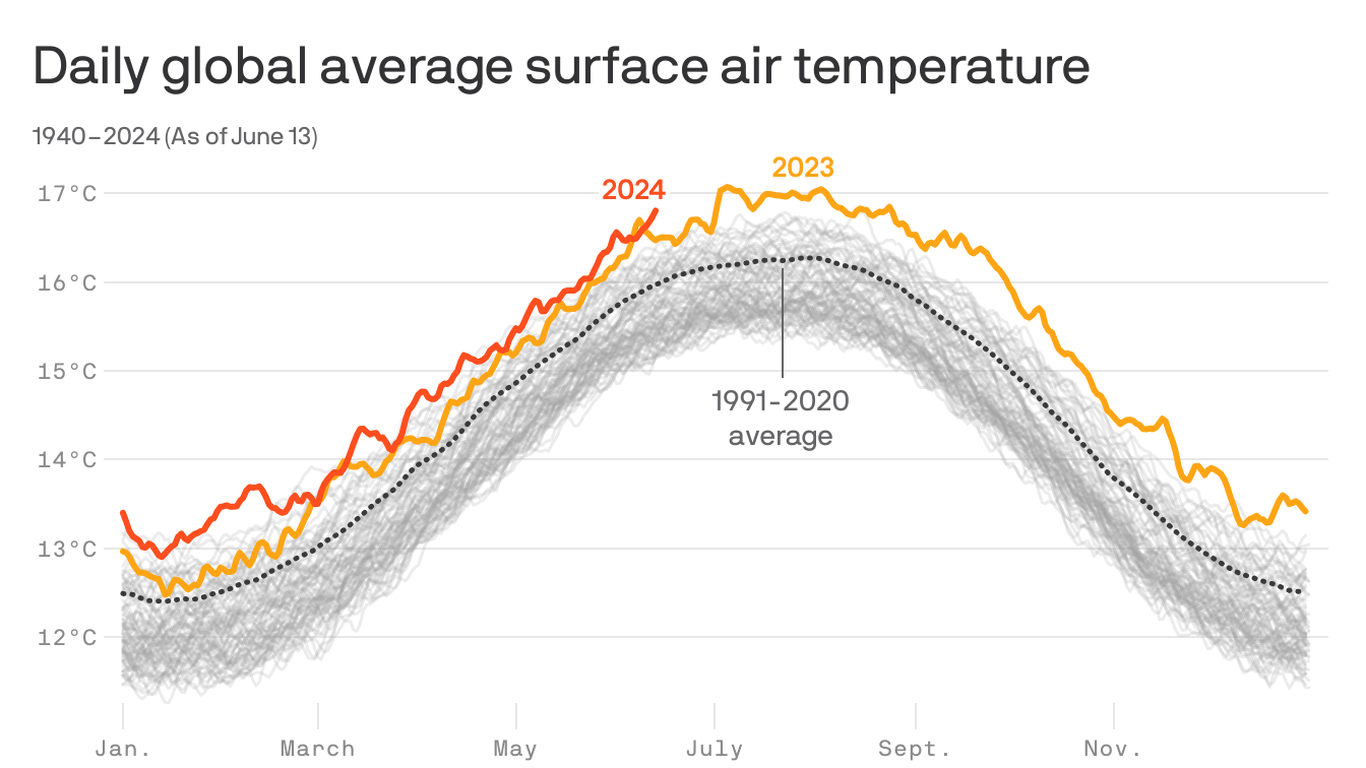
Record-breaking heat waves, flash flooding, and wildfires have been affecting various parts of the world including Europe, Africa, Asia, and the US. Hundreds of millions of people have been impacted by these extreme weather events.
The U.S., in particular, has seen all-time heat records being tied in Maine and Delhi with temperatures reaching up to 125°F (45.6°C) in some areas. Heat waves have also affected Japan causing bullet trains to be suspended due to landslide threats and record rainfall.
Europe has seen damaging flooding in Germany and catastrophic flooding in southern Brazil displacing hundreds of thousands of people. Flash flooding occurred in South Florida causing significant damage from Fort Lauderdale to Miami.
Parts of the US have experienced deadly instances of weather whiplash with Ruidoso, NM losing 1,400 structures in a fast-moving wildfire and then seeing damaging flash flooding two days later.
Studies show strong links between heat waves and human-caused global warming as well as the relationship between more likely and intense heavy rainfall events, flooding, and increased greenhouse gases in the atmosphere.
June is likely to become the 13th-straight month of record-breaking heat across the globe with oceans being record warm and Atlantic hurricane season anticipated to be potentially record-setting.
Despite these extreme weather events, some areas are still experiencing below-average temperatures. For instance, Manchester, New Hampshire; Hartford, Connecticut; Augusta, Maine; Bangor, Maine; and Portland, Maine have all reported cooler than average temperatures recently.
Heat waves are getting more frequent and intense due to record warmth in oceans. This has fueled fears of a hyperactive hurricane season. In New Mexico alone, at least two people have died as a result of wildfires that have destroyed over 1,000 structures and caused considerable flash flooding and debris flows.
It is important to note that these extreme weather events are not limited to any particular region or country. They can occur anywhere in the world, making it essential for individuals and governments to be prepared for such events.


